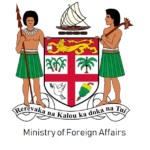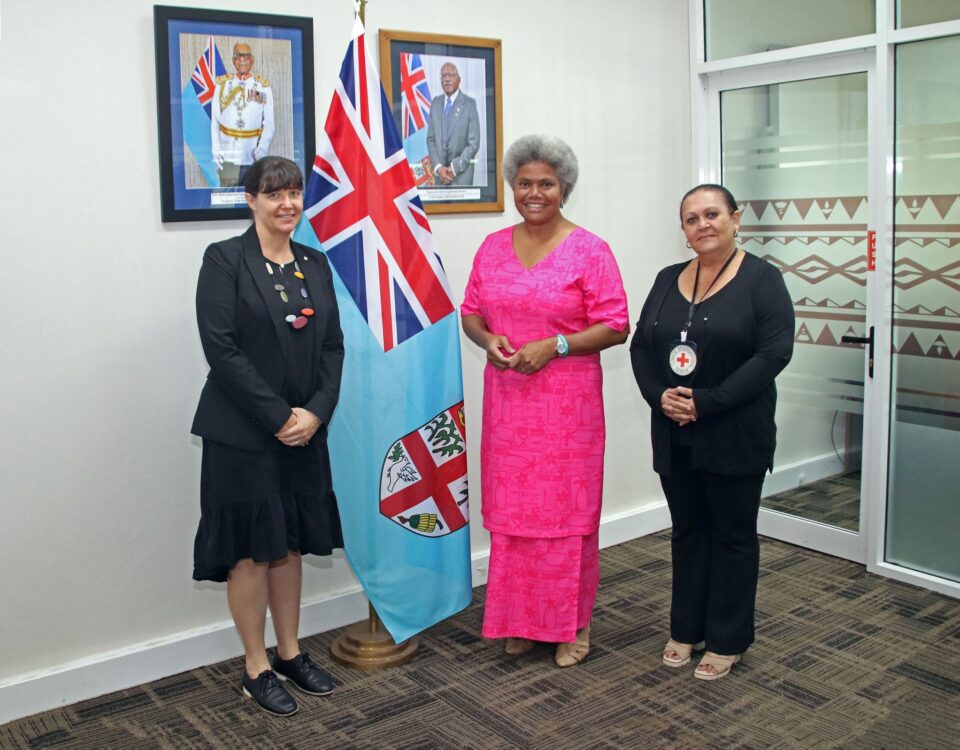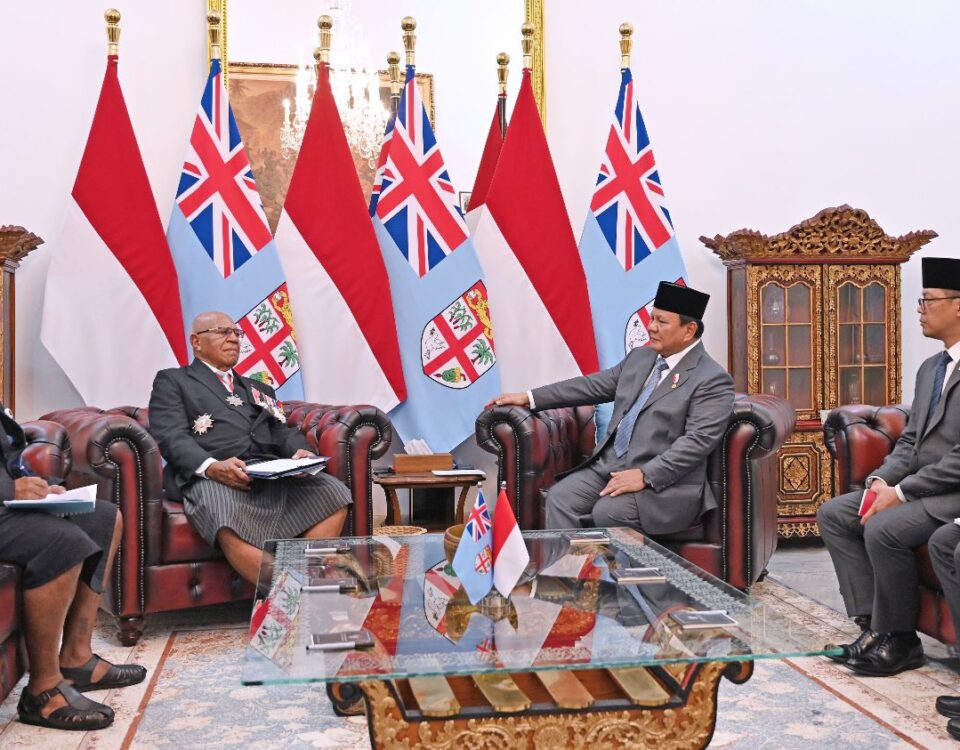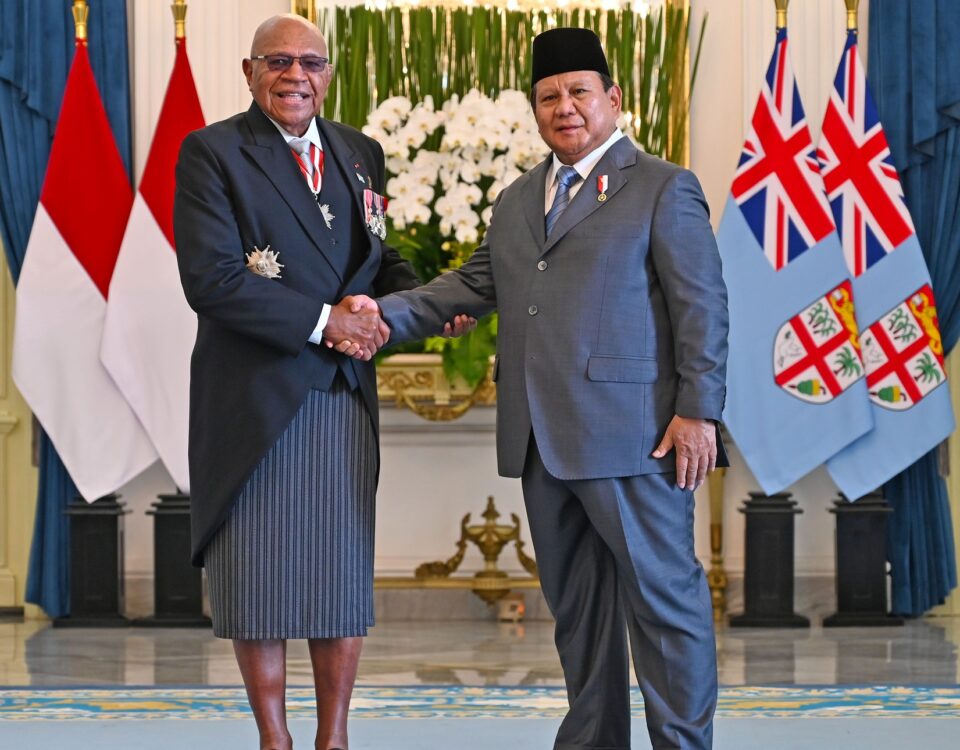
PM Bainimarama’s Statement at the Commonwealth Call for Action on Living Lands
04/11/2021
PM Bainimarama’s Statement at the Launch of the Infrastructure for Resilient Island States Event
04/11/2021Published On: 04/11/2021
Bula Vinaka and good morning.
It’s wonderful to be with you to speak on a cause that is deep within the heart of every Fijian. And I thank the Coral Reef Rescue Initiative for keeping our reefs where they belong, at the very heart of our climate action effort.
Today, I wanted to share my own story, and my own relationship with Fiji’s reefs. It’s not an easy story for me to share. But I do so in the hope that it shows how humanity’s relationship with our ocean can change, and must change, as mine has.
Like most Fijians, I was on the water at a very young age. My first real job was working on board an old sailing yacht called “Maroro” –– a boat that already had a rich history as the personal vessel of Queen Sālote of Tonga.
It sounds nicer than it was. We were not royalty, nor were we pleasure sailing. Of our many duties, there is one I’ll never forget and will always regret: reef blasting. For those of you who aren’t familiar with this terrible practice, we were demolishing coral with explosives, carving channels for boats to safely pass through.
Sadly, that work was in high demand. I travelled our waters blasting reefs –– some of the richest and most vibrant sources of biodiversity on the planet –– and went on to take that disastrous skillset with me into the Fijian Navy. I learned to dive properly, and became even more effective.
Not your usual start for an oceans champion, I know. But it was those years, as a young man on a boat sailing our vast Blue Pacific that forged the connection with the ocean that I carry with me today. As I learned more about our reefs –– and the lasting damage we were causing–– my heart broke.
When you spend your young years in a nation of 330 islands, the vast stretches of reef that surround you feel endless. It feels almost arrogant to think that you can erase them. But there are limits to their resilience, and we humans have the power to destroy them at a scale we can scarcely imagine. Blasted reefs take decades to recover. Some never have. In a matter of seconds, a single assault was erasing life systems constructed over millions of years.
In 1982, by the time I had risen to the rank of Commander in the Fijian Navy, we recognised the error of our ways. We banned reef blasting for good.
Fiji’s reefs today are properly marked so they can be easily navigated. We rely on hydrographic technology to keep vessels safe at sea. Our great Sea Reef –– the third longest reef system in the Southern Hemisphere and the home of half our known reef fish and three-quarters of our coral –– is under a regime of sustainable management. According to the WWF, its reefs, inter-tidal areas, and coastal wetlands feed around 80% of Fiji’s population
Blasting may no longer threaten Fiji’s reefs, but these vital ecosystems remain under attack. It isn’t happening as quickly as with a stick of dynamite, but it is far more extensive, far more effective, and far more deadly. And humankind, once again, is the villain.
Carbon is our new weapon of choice. And when we emit it into the atmosphere, our ocean –– the planet’s largest carbon sink –– sucks up huge amounts of it. It warms the seas, and acidifies them, making it impossible for ocean life to thrive.
I’ve watched how the changing climate is changing our oceans. I’ve seen mountains of bleached coral stacked on beaches. I’ve seen fish stocks decrease and reef structures levelled by cyclones. And I no longer suffer from the illusion that our oceans are endlessly resilient. A Fijian born today may not have a reef to visit by the time they reach my age. And in some of the more extreme warming scenarios, we risk turning the entire equatorial belt into a death zone. Humanity will struggle to survive that massive loss in life, culture, economic potential, health and food security.
Fiji has fought at these negotiations to engrain the Ocean Pathway into the processes of the UNFCCC. Now we must decide where that pathway leads.
Number one, for the sake of the reefs, ocean, and the general habitability of the planet, we must cut carbon emissions. As that happens, we have to do the work of rebuilding the resilience of our reefs.
And Fiji is open to partnerships to ensure that we pass our reefs on to coming generations.
Fiji has partnered with the Green Climate Fund, the Global Fund for Coral Reefs, the Global Environment Facility, the WWF, the Bezos Earth Fund, and other multilateral, bilateral, philanthropic and private sector partners to help meet our commitment to sustainably manage all 1.3 square million kilometers of Fiji’s ocean, with 30% declared as marine protected areas.
And we’ve seen that good reef management works. After category five Cyclone Winston slammed into Fiji in 2016, many of our reefs in the storm’s path lay in ruin. But early this year, we confirmed that those same cyclone-devastated reefs have made a remarkable comeback. The lesson is that well-managed reefs are more resilient reefs.
If we manage them responsibly, and do what needs to be done to curb carbon emissions, these eco-systems can thrive.
Rather than see their colours and beauty sacrificed for the sake of the world’s carbon addiction, they can feed, support and inspire coming generations. That is the carbon-neutral and nature-positive future that Fiji is here in Glasgow to fight for.
My friends, as ocean Leaders, we speak for the ocean. We are its defenders –– and we must defend it as seriously as we defend our citizens. For its health will determine the quality of our future and that of our descendants.
My life on the ocean –– even its unfortunate start –– has shaped my perspective. It’s why I call out climate denial. Because today, we know better. The science is there. Our fate is mapped out before us. Today’s teenagers in Fiji are protecting our reefs –– inventing plastic-alternatives, attending UN conferences, and protesting climate inaction. If a child in Fiji can do it, Leaders of the world’s most powerful companies and countries have no excuse.
The lesson my life at sea has taught me is this: We can’t be perfect –– many of us have not been. We have made many mistakes, and at times we have acted out of ignorance. But that isn’t an excuse for inaction today. Let’s make a promise to each other to leave the world better than we left it. Admit to our mistakes. Learn from them. And grow alongside the science. By doing so, you can be the change that you want to see in the world, and you can help steer us to a brighter, bluer future.
Thank you –– or as we say in Fiji, “Vinaka Vakalevu”.





